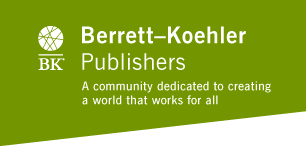- By the authors of the classic Ideas Are Free
- Shows how systematically encouraging and implementing employee ideas can unlock up to 80 percent of an organizationís potential for innovation and improvement
- Full of illuminating examples from innovative companies around the world, such as Brasilata, Hickory Chair, Allianz, and Toyota
Too many organizations are overlooking, or even suppressing, their single most powerful source of growth and innovation. And itís right under their noses. The frontline employees who interact directly with your customers, make your products, and provide your services have unparalleled insights into where problems exist and what improvements and new offerings would have the most impact. But these ideas are rarely listened to or acted on.
In this follow-up to their bestseller Ideas Are Free, Alan G. Robinson and Dean M. Schroeder show how to align every part of an organization around generating and implementing employee ideas and offer dozens of examples of what a tremendous competitive advantage this can offer. Their advice will enable leaders to build the kind of idea-driven organization capable of implementing 50 to 100 or more ideas per employee per year.
Using examples from idea-driven organizations around the world, they explain whatís needed to put together a management team that embraces grassroots ideas and describe the strategies, policies, and practices that enableóor hinderóthem. They detail exactly how high-performing idea processes work and how to design one that fits your organization, including teaching employees how to come up with more and better ideas.
Every organization today is being pressed to do more with less. But cutting wages and benefits and pushing people to work harder with fewer resources can go only so far. Ironically, the best solution resides with the very people who have been bearing the brunt of these measures. With Robinson and Schroederís advice, you can unleash a constant stream of great ideas that will strengthen every facet of your organization. But while the ideas may come from the bottom, the effort to encourage and implement them must be led from the top.
 0 items in cart
0 items in cart









